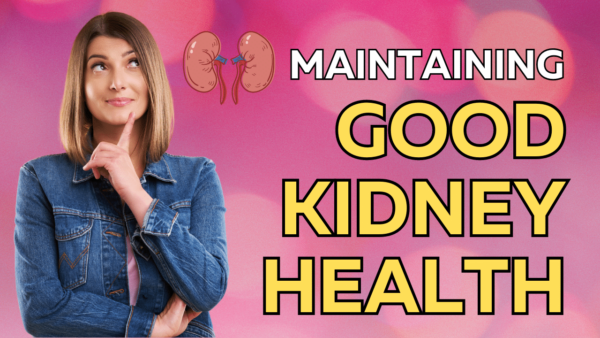Introduction
Welcome to the definitive guide to allergy prevention, where we will provide you with essential insights and actionable advice to help you minimize allergy symptoms and safeguard your health. This comprehensive resource will explore the science of allergies, identify common allergens, and present effective prevention strategies, management techniques, and environmental adjustments.
<a name=”understanding-allergies”></a>
Understanding Allergies
An allergy is an immune response to a foreign substance (allergen) that is not typically harmful. The immune system produces antibodies to defend against these allergens, leading to inflammation and allergy symptoms. Various types of allergies include seasonal, food, and contact.
Identifying Common Allergens
To prevent allergies, it’s crucial to recognize the most common allergens. Some of the prevalent allergens include:
- Pollen: Pollen from trees, grasses, and weeds can cause seasonal allergies, often called hay fever.
- Mold: Both indoors and outdoors, mold spores can provoke allergic reactions.
- Dust Mites: These microscopic creatures thrive in warm, humid places and are many times found in bedding, upholstery, and carpets.
- Pet Dander: Proteins in pets’ skin cells, urine, and saliva can trigger allergies.
- Insect Venom: Stings from insects like bees, wasps, and fire ants can lead to allergic reactions.
- Food: Common food allergens include peanuts, tree nuts, milk, eggs, soy, wheat, fish, and shellfish.
Allergy Prevention Strategies
To minimize exposure to allergens and prevent allergies, consider the following strategies:
Pollen Allergy Prevention
- Stay indoors on high pollen count days.
- Keep windows and doors closed.
- Use air purifiers with HEPA filters.
- Shower and change clothes after outdoor activities
Mold Allergy Prevention
- Maintain indoor humidity below 50%
- Use a dehumidifier in damp areas.
- Fix leaks and ensure proper ventilation.
- Clean mold-prone surfaces regularly.
Dust Mite Allergy Prevention
- Encase mattresses and pillows in allergen-proof covers
- Wash bedding in hot water weekly.
- Vacuum regularly with a HEPA-filter vacuum.
- Reduce humidity and clutter.
Pet Allergy Prevention
- Choose hypoallergenic pet breeds.
- Bathe and groom pets regularly.
- Restrict pets from some regions of the home.
- Use air purifiers and vacuum frequently.
Insect Venom Allergy Prevention
- Wear protective clothing outdoors.
- Avoid perfumes and bright-colored clothing.
- Use insect repellent and insecticides.
- Keep outdoor eating areas clean and free of food debris.
Food Allergy Prevention
- Be aware of common food allergens and read labels carefully.
- Inform restaurants of your allergies when dining out.
- Practice proper food handling and preparation techniques.
- Carry an epinephrine auto-injector if prescribed by your doctor.
Managing Allergies with Medical Treatments
In addition to prevention strategies, medical treatments can help manage allergy symptoms. These treatments include:
- Antihistamines: Medications that block the histamine released during an allergic reaction.
- Decongestants: Medications that reduce nasal congestion by narrowing blood vessels.
- Nasal corticosteroids: Sprays that reduce inflammation in the nasal passages.
- Leukotriene modifiers: Medications that inhibit the actions of leukotrienes, which are chemicals involved in the allergic response.
- Immunotherapy: Allergy shots or sublingual tablets that gradually expose the immune system to allergens, helping to build tolerance.
Creating an Allergy-Proof Environment
Making specific adjustments to your environment can further minimize allergen exposure and prevent allergy symptoms:
At Home
- Maintain a clean and clutter-free living space.
- Use allergen-proof covers on bedding.
- Replace carpets with hardwood or tile flooring.
- Install HEPA filters on air conditioning and heating systems.
At Work
- Keep your workspace clean and dust-free
- Request a HEPA-filter air purifier, if possible.
- Store food in sealed containers to avoid attracting pests.
- Advocate for allergy-friendly policies, such as a fragrance-free environment.
Developing a Personalized Allergy Prevention Plan
To create an effective allergy prevention plan, consider the following steps:
- Identify your allergens: Consult with an allergist to determine the specific substances that trigger your allergies.
- Implement prevention strategies: Apply the appropriate prevention strategies for your specific allergens.
- Seek medical treatments: Discuss your allergy symptoms with a healthcare professional to identify the most suitable treatments.
- Monitor and adjust: Continuously evaluate the effectiveness of your prevention plan and make necessary adjustments.
Conclusion
You can effectively reduce allergy symptoms and protect your health by understanding allergies, identifying common allergens, implementing prevention strategies, seeking medical treatments, and creating an allergy-proof environment. Consult with a healthcare professional to develop a personalized allergy prevention plan tailored to your needs. With the proper knowledge and tools, you can take control of your allergies and enjoy a healthier, more comfortable life. You can also get an allergy blood test from Walk-In Lab to narrow down potential allergens.

